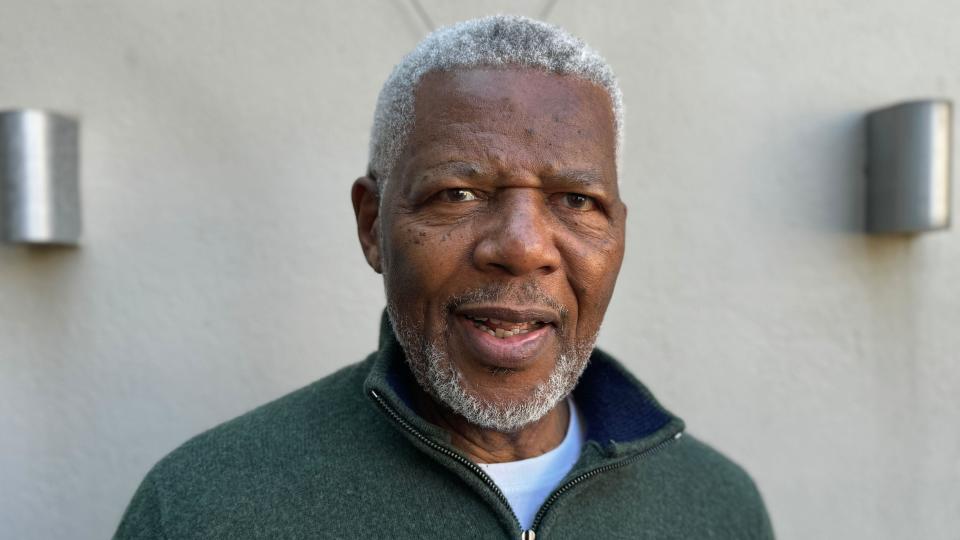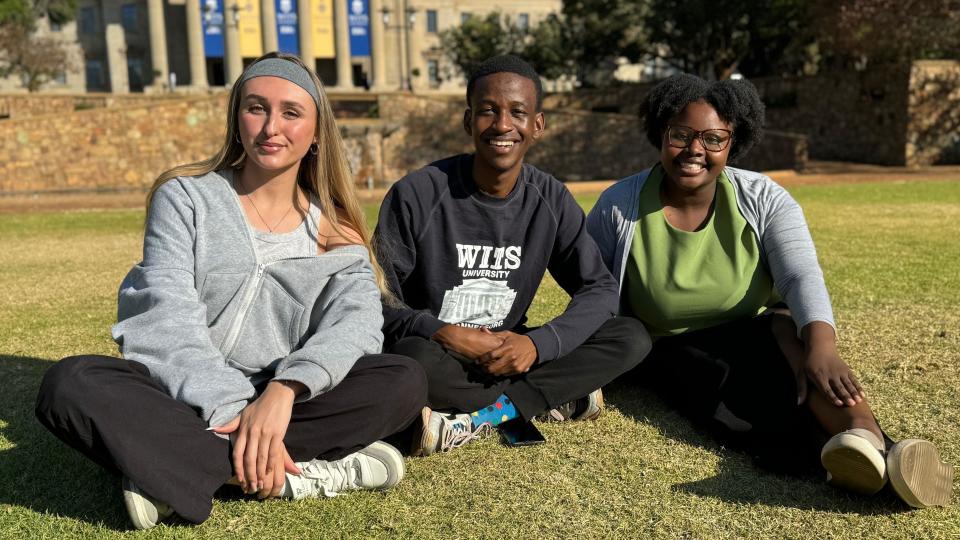Mavuso Msimang read the writing on the wall last year and now the people of South Africa have confirmed what they saw.
The African National Congress (ANC) veteran resigned from the party in December after 66 years, alleging endemic corruption and warning that the ANC was “on the verge of losing power”.
The party has lost the position of unparalleled political power it has held since the end of apartheid 30 years ago, with a sharp drop in support.
As South Africans digest a pivotal moment in their history, they look back at what it meant for the ancient liberation movement, and forward at what it means for the country’s future.
“I think we can all agree that it’s time for a change,” says Lerato Setsiba, a computer science student at the University of the Witwatersrand in Johannesburg.
“But I think most people right now are pretty scared… we don’t know what’s going to happen.”
The past
Mr Msimang’s home is decorated with tributes to the iconic former ANC leader – a life-size painting of Nelson Mandela, a coffee table book bearing his name.
Msimang served in the ANC’s armed wing, uMkhonto weSizwe, in the 1960s and was appointed to several government positions following the 1994 elections that brought the movement to power.
He is now the vice-president of the ANC veterans’ league, which has strongly advocated action against corruption within the party’s ranks.
“There has always been a tendency not to deal with accountability issues,” he says, but the economic mismanagement that resulted “affected people very directly.”
“When I saw those long lines [of voters] which are almost similar to what happened in 1994, I didn’t think they were in line to celebrate the ANC. It was very clear to me that something bad was coming.”
“I’m very disappointed,” he told me. “I don’t know how the legacy of the ANC will be recovered. I hope this isn’t forever.”
Many older voters who remember the horrors of apartheid remained loyal to that “legacy of liberation” – the ANC’s leading role in overthrowing the white minority government.
They also remember his progressive social welfare policies that lifted millions of black families into the middle class and expanded basic services like water, electricity and social assistance to millions more people.
But the party began to attract people interested in power and political patronage.
Its downfall really began under the government of former president Jacob Zuma, who resigned in disgrace amid allegations that he had allowed business associates to infiltrate government ministries. He denies the accusations.
Zuma was replaced by Cyril Ramaphosa, who was accused of not taking strong enough measures to root out corruption in the party.
However, Mr Msimang did not give up on the ANC. He was convinced by his senior comrades to rejoin the party.
“I don’t believe all is lost. There is time for the ANC to regroup,” says Msimang.
“But renewal of the ANC would take the form of ensuring that elements that are truly corrupt are removed from the organization. We have really failed to act decisively to do this… we have not heeded the calls of the people.”
However, Msimang is concerned about the absence of a strong alternative to the party: “There is this fragmentation, which will leave the country very unstable if this persists.”

The gift
At the election results center near Johannesburg, the numbers appear on a panel that tracks the vote count.
Its giant screen towers over a hall packed with journalists, party representatives and analysts like Susan Booysen. She found a quiet place to talk to me.
The topic is coalition politics, which South Africa has not had at national level for two decades. Although the ANC is still by far the largest party, it will have to share power to continue to govern.
The political scenario is complicated and fraught with consequences because the main parties have different visions for the country.
The pro-business Democratic Alliance is not an easy choice due to its free market agenda and its reputation as the party of the white community and other minority groups.
The next two biggest parties are on the radical left, Zuma’s new uMkhonto weSizwe (MK) – a name it adopted from the paramilitary wing of the ANC – and the Economic Freedom Fighters (EFF). They talk about the seizure of white-owned land and the nationalization of mines and banks.
The ANC considers the EFF to be “too erratic in its direction, too in-your-face, and too irrational in its political demands”, says Ms Booysen.
And there is too much “bloodshed” between the ANC and MK, which has stated that it will not partner with the ANC as long as Mr Ramaphosa remains its leader.
Removing Ramaphosa is “the main objective of the MK party at this stage, and the ANC is collateral damage in that process, as far as they are concerned”, she says.
Zuma’s return, despite having presided over a decade of rampant corruption, has thrown an unpredictable element into the mix. He stormed the convention center on Saturday night to make accusations of voter fraud.
The outcome of what are expected to be turbulent coalition negotiations could decide between two very different directions for South Africa.


The future
On the Wits University campus in Johannesburg, a group of student actors are staging a pop-up parody of the election.
People turned out in large numbers to vote here – many of them, like medical student Nobuhle Khumalo, for the first time.
She’s excited about the change, but doesn’t know what it means: “We’ll just see how it goes as it happens.”
We are talking in front of the library with two of her friends, Mr. Setsiba and music student Silka Graetz.
They hope that a coalition government will bring more accountability and transparency, but fear that this could result in greater political instability and dysfunction.
“I think increasing votes with other parties definitely creates healthy competition,” says Graetz.
“And I think with healthy competition comes better service, just improvement in a lot of different fields.”
Young people, many of whom had not experienced apartheid, were more willing than their parents to abandon the ANC, driven by concerns about their future.
Around 45% of young people in South Africa are unemployed, the highest rate recorded in the world.
“When campaign season comes, issues that concern young people are not addressed,” says Setsiba, criticizing the government’s budget cuts to education in recent years.
“Invest funds in universities, stimulate entrepreneurship and make it a prosperous country for new businesses!”
Ms Graetz warns that it will be important to restore investor confidence in the country in order to improve the economy.
Both she and Mr. Setsiba are preparing to graduate, so entering the job market is on their minds.
Ms. Graetz is acutely aware that her future will be shaped in the next four or five years, the period leading up to the next elections.
“The only question I have is, ‘How long do we have to wait to see something [change]?'” she says. “I think there’s been a big change in attitude. How long until this is put into action?”
It took 30 years for the ANC to be held accountable for its failures. South Africa’s younger generation is not prepared to wait that long.


































